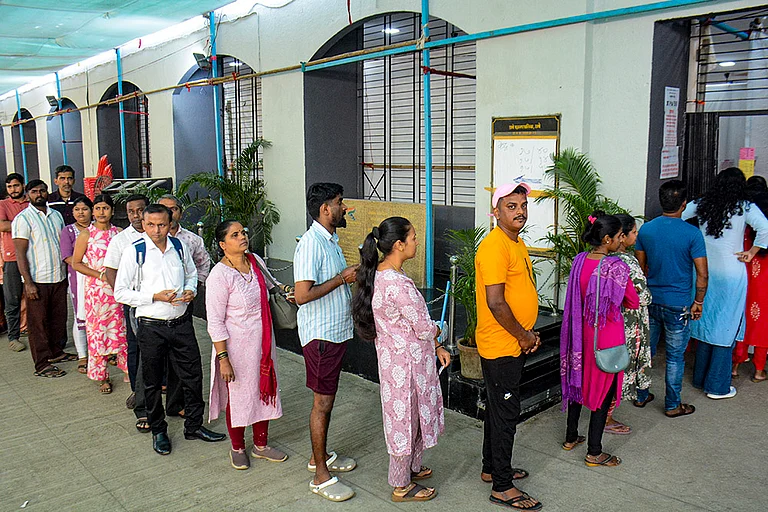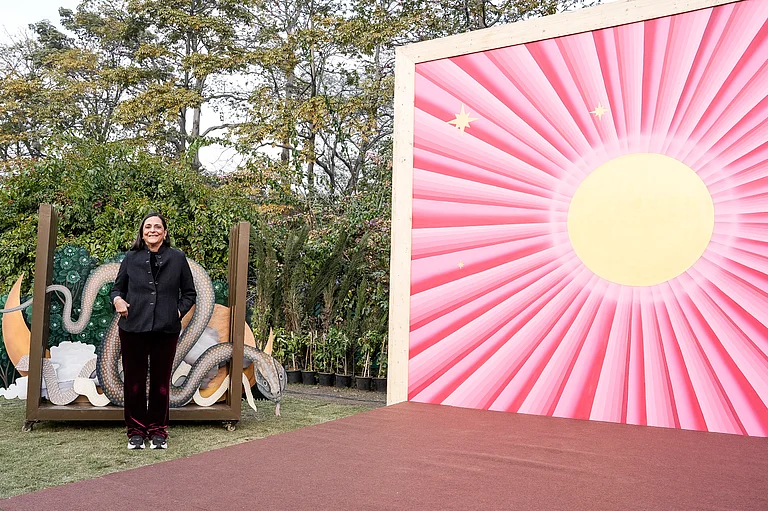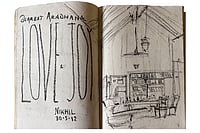Sit, drink your coffee here; your work can wait awhile.
You’re twenty-six, and still have some of life ahead.
No need for wit; just talk vacuities, and I’ll
Reciprocate in kind, or laugh at you instead.
The world is too opaque, distressing and profound...
—from Sit by Vikram Seth
We both laughed and drank coffee. I am not twenty-six. But there is still a lot of time ahead. Outside, the world continued being profound and distressing. A red book glowed in the lamplight. It is poet Vikram Seth’s translation of The Hanuman Chalisa that’s recently been published by Speaking Tiger Books.
He dedicated it to Bhaskar, a fictional character in his novel The Suitable Boy, who, as a young boy, learned the poem and as a young man, resisted the co-option of the Tulsidas poem and other religious texts by vested interests.
All reclamation is a leap of faith. Seth’s apartment is a labyrinth of bookshelves. There is place for everything. Even dead flowers and a stack of biscuits.
He had jokingly said the entry fee would be five Digha Malda mangoes. He had spent some years in Patna in Bihar long ago and had first recited a part of his translation of The Hanuman Chalisa almost a decade ago at the first edition of the Patna Literature Festival.
“To steel yourself against mangoes showed a degree of iciness that was almost inhuman,” Seth had written in his novel A Suitable Boy.
Strangers sent the mangoes from Bihar when I asked if anyone could send me some Malda mangoes from my home state. No iciness there. Mangoes can unite people.
Seth is a wanderer accumulating material for future nostalgias. That’s what he said in one his books. Mangoes are nostalgia.
The poet picked up a mango and smelled it.
“Ripe,” he announced.
We sat on little stools surrounded by hundreds of books and notebooks about thousands of people and places and emotions and animals and birds in those.
We spoke about translating the most beloved poem of Indians, the rising intolerance and why Seth decided to publish the translation of The Hanuman Chalisa.
“If I am such a beneficiary of translations, who am I to hug my translations close to myself,” he said.
He had first translated The Hanuman Chalisa for his now 90-year-old aunt and at her insistence, he agreed to publish it a decade later.
“I don’t share the vision to misuse it—a great, wonderful, sacred text—to do unkind, cruel, arrogant things because Hanuman was not an arrogant person; he did it in the service of someone else,” he said.
There was a lot more. About this and that.
But there is always another time for such tales about an encounter with a poet.
In the meantime, the green of the mangoes alongside the red of the book stood out.
MORE FROM THIS ISSUE
Both ours to keep. Both ours to reclaim and reciprocate. With laughter and mangoes.
(Watch the full interview)

































